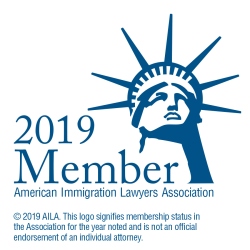For this blog entry, I will let my readers play the role of the Immigration Service adjudicating officer.
“Raymond” is a geologist who is also an IT expert. At the time he contacted me, he was working in a temporary status (H-1B) for a US research university, in a very unique program. He spent several months at the university creating and perfecting software. Then he took the software with him to the other part of his job, which involved living on a very specialized ship, somewhere out in the Pacific. The project on the ship was funded by an international consortium of about two dozen nations. Its purpose was to study the earth’s core to help predict, and possibly prevent, earthquakes. Using a multi-million dollar budget, the ship uses specially-designed, one-of-a-kind drilling equipment to bring samples up from beneath the ocean floor. Each sample must be carefully analyzed and recorded, using the software that Raymond developed. The information is transmitted to consortium members, who are sometimes using computer systems that are different than the one on the ship. If the software breaks down, or isn’t properly designed in the first place, hundreds of thousands of dollars, or maybe more, in research will be lost.
In order to get permanent residence for Raymond, I had to show that his work was exceptional, and that it would have nationwide benefits in the United States. I am guessing that very few of my readers’ friends and neighbors would be able to replace Raymond. And I am also guessing that many of my readers would like to know ahead of time if their city was about to be hit by an earthquake. But I will let you each play the role of the adjudicating officer before you read the next paragraph.
Would Raymond’s employer have sent him out on the ship if his work was not exceptional? Would the consortium have invested many millions of dollars if the work would not have nationwide, and indeed international, benefits?
The immigration officer found that Raymond’s work was not exceptional, and that it would not have nationwide benefits. It took over a year for me to win the appeal. By then, Raymond and his wife were living in Australia, where his work was appreciated, and where his wife settled into a PhD program that would keep them in Australia for several years.
Raymond is finally about to come back to the United States, now that his wife has finished her PhD. He is on the ship right now, and will be back at the university, further refining the software, in a few months.
For the past five years or so, the international consortium has had to do without his services.




